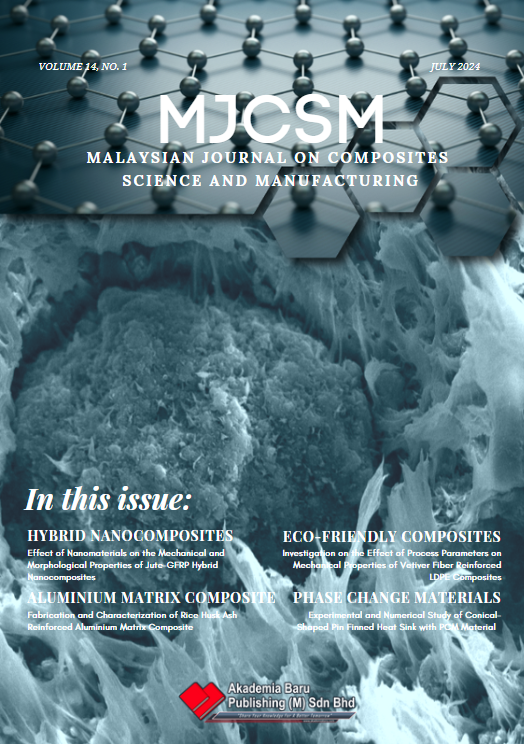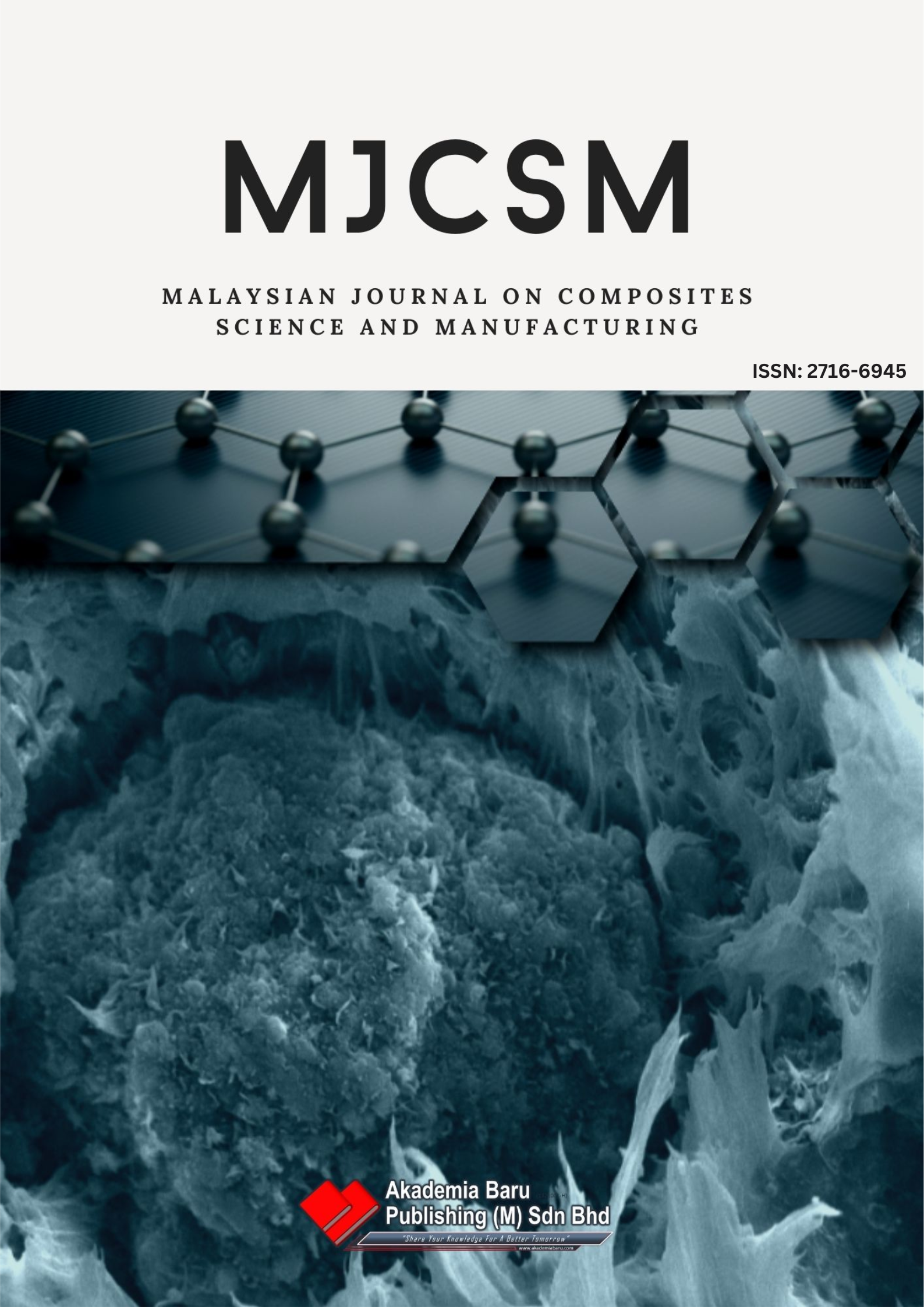Investigation on the Effect of Process Parameters on Mechanical Properties of Vetiver Fiber Reinforced LDPE Composites
DOI:
https://doi.org/10.37934/mjcsm.14.1.5872Keywords:
Composite, LDPE, Sodium dodecyl sulfate-treatment, Mechanical PropertiesAbstract
Natural fibers (NFs) are extensively used for the ecological concern of synthetic fibers. The benefits of NFs over man-made fibers are their easy accessibility, renewability, lightweight, biodegradability, high specific features, and low price. The key reasons for affecting the features of the composite are the length and content of the fiber and the time of treatment of the fiber. Consequently, the prediction about the optimal fiber length, fiber content and treatment time becomes important, so that composites with optimal mechanical properties can be prepared. The current study narrates an experimental investigation on the effect of process parameters, namely fiber condition (untreated and sodium dodecyl sulfate (SDS) treatment), fiber sizes (3, 5, and 7 mm), fiber contents (10, 20, and 30 wt%), and treatment time (2, 4, and 6 h) on vetiver fiber (VF)-reinforced low-density polyethylene (LDPE) composite. The VF-reinforced LDPE composites have been developed by hot compression molding method and then characterized by mechanical properties (e.g., tensile strength, tensile modulus, compressive strength and modulus, impact strength, and fracture toughness) and scanning electron microscopy (SEM). The results showed that the composites’ tensile, compressive, impact properties and fracture toughness increased with increasing fiber size, fiber percentage, and treatment time. Afterwards, mechanical properties decreased by a certain size, percentage, and treatment time. SDS-treated VF-reinforced LDPE composite samples produced better tensile, compressive, and impact properties compared to the untreated composites. The composites reinforced with 20 wt% fiber content, 5 mm in length and 6 h showed the best tensile, compressive, impact properties and fracture toughness. The SEM study revealed that the SDS-treated fiber composite confirmed the homogeneous dispersion rather than the untreated composite. The composite properties reveal that VF can be a good candidate for polymer reinforcement.
Downloads












